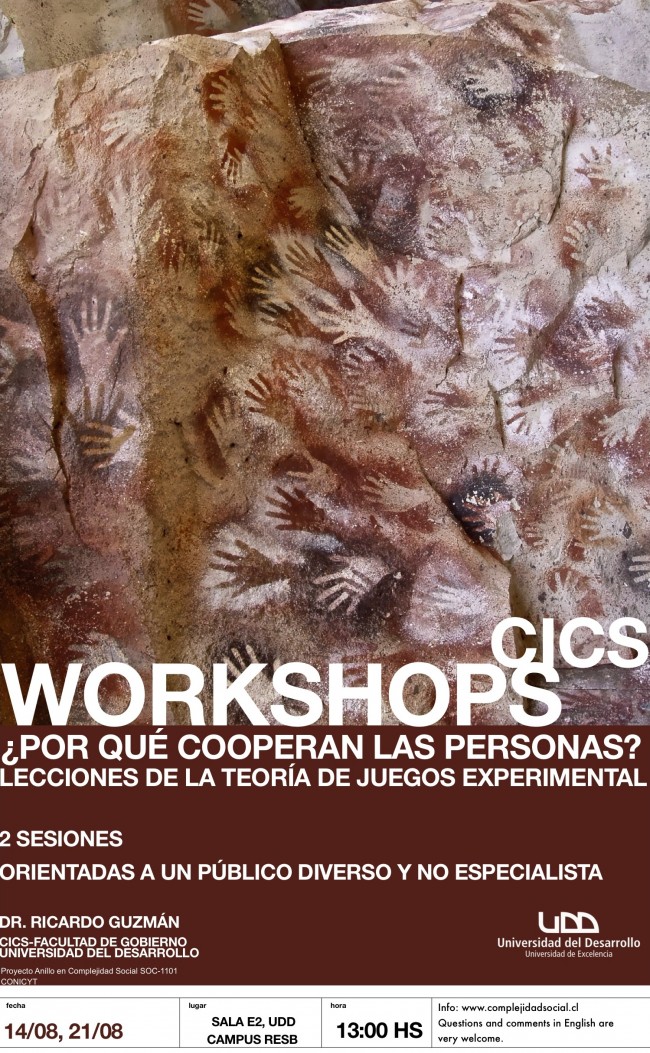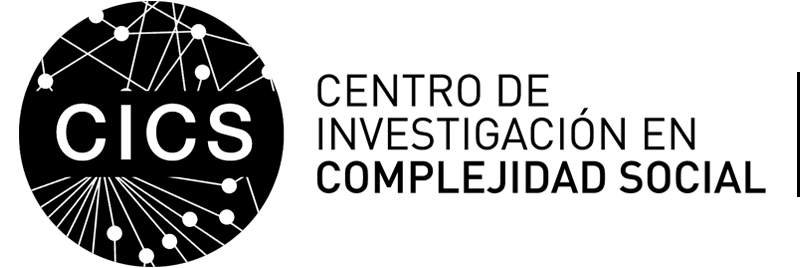CICS’s “Why do people cooperate? Lessons from experimental game-theory” Public Workshop
Monday, 5 August, 2013 | CALENDAR, EVENTS, NEWS
In this workshop we will present two game-theoretic models of cooperation: the public good game and the common pool resource game. We will also review a series of experiments that use these games to investigate cooperative behaviors of actual people. From the accumulated experimental evidence we will extract lessons concerning the factors that promote and hinder cooperation.
Instructor: Dr. Ricardo Andrés Guzmán, CICS, Facultad de Gobierno, Universidad del Desarrollo.
CICS’s Workshops are oriented to a diverse and non-specialist audience. The workshops aim to disseminate frontier research in the social sciences, and to build bridges for interdisciplinary research.
This workshop is part of the proyect Anillo CONICYT “Social Complexity” SOC-1101.
Program
1.Game-theoretic models of cooperation
- The public good game (PG)
- The common pool resource game (CPR)
- Examples.
2.Repeated PG and CPR experiments
- The main stylized fact: cooperation erodes.
- Competing hypothesis: learning, strategic behavior, conditional cooperation.
- Experimental evidence: partner/stranger treatments; strategy method design
3.Factors affecting cooperation
- Features of the game: marginal per capita return; group size; endowment heterogeneity; threshold; provision threshold; communication
- Features of the subjects: demographics; experience; knowledge of economics; group identity.
4.External validity of PG and CPR games.
General information
When: Wednesdays 14th and 21th August. 13:00 hrs. -15:15 hrs. (all sesions include coffe break)
Where: E2 Classroom, (second floor, E Building) Universidad del Desarrollo, Campus Rector Ernesto Silva Bafalluy, Av. La Plaza 680, Las Condes.
Language: Spanish (questions and comments in English are very welcome).


